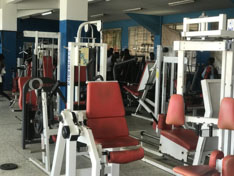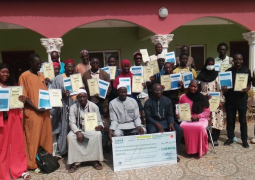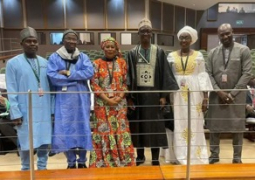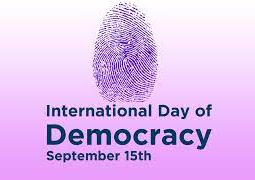
Lives and livelihoods continue to bear its negative impacts, especially businesses, including fitness activities. The lockdown traumatized gym users, triggered bankruptcy for gym owners, as well as caused serious physical health fitness concerns for gym owners and goers.
With the imposed lockdown, peoples’ spur for exercise during the harsh time has waned significantly, due to the spread of the coronavirus pandemic; thus, seriously affecting human activities including business for gym owners.
Pa Modou Sallah, Proprietor of Universal Fitness, who also doubles as the Treasurer of The Gambia Gym Club Association, said he suffered huge financial losses during the pandemic as the contracts he had with other companies, whose staff train in his gym were revoked due to the pandemic and subsequent lockdown.
“We were closed for eight months without operating,which means no income was coming in… we’ve been paying our rent regularly, and for the gym, we basically paid about D25,000 a month. Eight months of D25,000 monthly, you know that is a big amount of money,” he said, adding that the low turnout of clients and the fact that he has to give cash to his full time staff, caused a huge financial burden on his business.
The worst part of all, he said he was trying to standardise the gym before the pandemic hit. “I took a very big loan to try and upgrade the standard of the gym by adding another extension… which was an additional cause with the landlord. Just two months after signing that contract, the pandemic came…” Mr. Sallah said he still has not completed paying the loan.
Asked if his gym has benefited from any form of financial assistance during the lockdown, Sallah said, he did not receive any financial support from the government or other agencies. “Government has been giving incentives to many businesses, and institutions and it was fair for them to considerus, because we are paying tax, as all institutions are doing. Secondly, we are Gambians equal to other institutions. What we are doing is an indirect hospital because prevention is better than cure. When you fall sick, you go to the hospital to be treated or cured, so what we are operating as Gambian youth is prevention to that, because the more the gyms in the country, the more you minimise people going to the hospital.” Sallah remarked.
He added that they deserve financial support more than other entities like hotels which were prioritised in receiving the Covid relief funds from government, adding that they complement the efforts of the government in ensuring a healthy nation through physical health activities.
Mohammed Legally-Cole, who has been a fitness instructor at the Independent Stadium in Bakau for over five years, reiterated the harsh effects of the pandemic, as they continue to feel its impact on a daily basis. “For almost three months, our clients have dropped drastically.
Mr. Legally-Cole explained that even though he tried to improvise by taking training sessions online, the two could not be compared as it was a burden on him and most of his clients, considering the expensive internet fee in the country and the lack of concentration which could have easily been avoided during on-site sessions.
“It is not the same, because you cannot train alone, you need the group, and now you are going to train alone, so it was a burden on some people.The sessions I take on WhatsApp, you hardly tell whether they are doing the exercise as the number of time the repetition they have to do. Because when I do it one set, that one set, they have to do it five times. But who can tell whether they do five sets?”
He called on government and other relevant authorities to come to their aid as they are also contributing to national development.
Adama Jammeh, an athlete who doubles as the National Team Captain of The Gambia Athletes, said the pandemic had a serious impact on his training as it came at a very crucial time. “During the pandemic, we were in Senegal at the High Performance Training Centre, preparing for our competitions and all of a sudden, the borders and the stadium were closed… the only thing we could do was to make sure we stay home, and have our home training.”
Jammeh explained that the home training could not be compared with the ones at the gym. “It’s very different, because training in the stadium, you have that free environment, you have that space for training, but, by training at home, you just have about 20 meter square to do everything and there are some facilities that you might not even get at home.”
Cecilia Goddart Njie, a former Gambia national athlete, fitness freak, and trainer at the Independent Stadium Gym, said fitness is a passion that she has been engaged in since 1994.
Ms. Goddart Njie, described the pandemic as a sad moment but added that it did not stop her from doing her physical exercises at home as she is addicted to workout.
“The pandemic was a sad moment and of course we all had to protect ourselves from getting sick, but nonetheless it did notstop me from working out because I had all the things at home,” she said.
Unlike most of her colleagues at the gym, Dominga J. Gomez, a workout trainee at the stadium, said she was able to train more during the lockdown than any other time. She advised her fellow youth, especially women to engage into physical exercises as it is very beneficial to their health.
The importance of fitness cannot be overemphasized, as it complements the efforts of authorities in ensuring a healthy societies through physical activities. According to the World Health Organization (WHO), physical inactivity is among the leading risk factors for non-communicable disease mortality. Individuals who are physically inactive have a 20% to 30% increased risk of death compared to people who are sufficiently active.
This story was produced with support from Journalists for Human Rights (JHR), through its Mobilising Media in the Fight Against COVID-19 in partnership with Mai-Media and The Point.
Read Other Articles In National News
G7 partners to invest over $80B in Africa’s private sector
Jun 15, 2021, 2:00 PM




